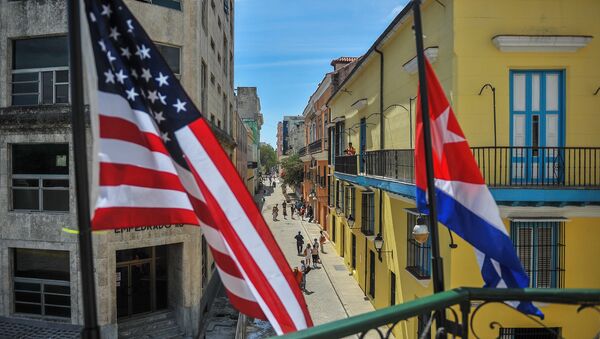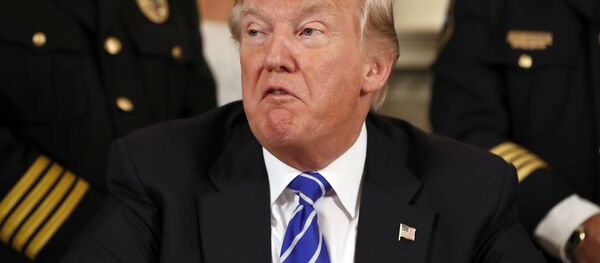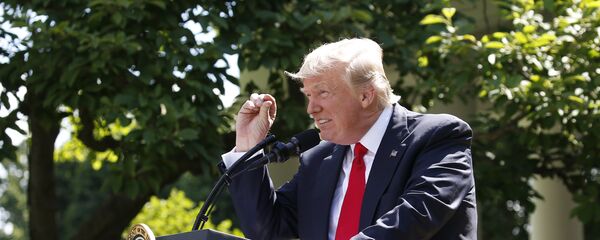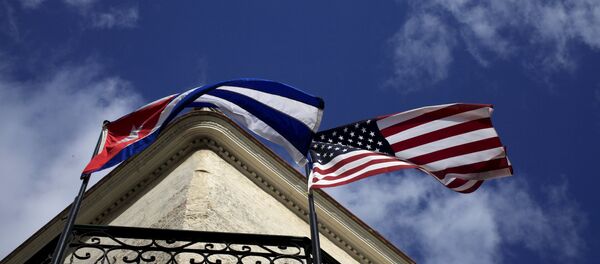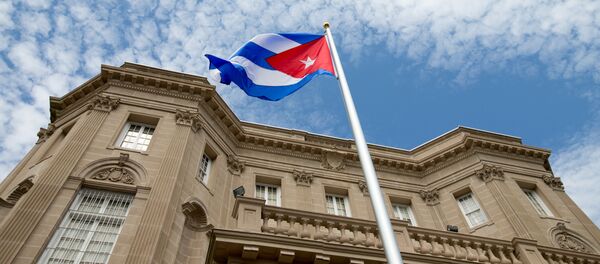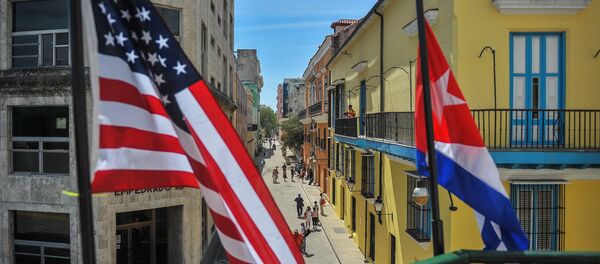WASHINGTON (Sputnik) — Trump scrapped his predecessor Barack Obama’s initiative to develop diplomatic and economic ties to Cuba in order to repay a political debt to the community of anti-Castro exiles in Florida.
"We will not lift sanctions on the Cuban regime until all political prisoners are freed, freedoms of assembly and expression are respected, all political parties are legalized, and free and internationally supervised elections are scheduled," Trump said in a speech in Miami, Florida last Friday.
"Few remember, but early during the campaign Trump was supportive of Obama's rapprochement with Cuba; a point of difference between himself and his Florida counterparts [Senators] Jeb Bush and Marco Rubio," Australian foreign policy analyst Crispin Rovere recalled.
Rovere pointed out that Trump had only adopted his tough line on relations with Cuba during the 2016 presidential campaign in his bid to win a high turnout of support from Cuban-Americans in Florida in the November 8 election.
ANTI-CASTRO VOTE CRUCIAL FOR TRUMP IN FLORIDA
The Cuban-American community was a key to Trump winning Florida, which itself was a very important state in the political battleground on the road to the US presidency, according to Rovere.
"It was only once Florida became crucial to delivering the White House that Trump played to the Cuban-American vote in Miami which is, by-and-large, staunchly anti-Castro," Rovere said.
"Accordingly, President Trump's announcement is aimed squarely at maintaining Cuban-American support in this essential swing state, as well as offering a concession to the hawks in his own party," Rovere explained.
However, Rovere observed that Trump did not terminate all of Obama’s efforts to restore diplomatic and communications links with Havana.
"It is noteworthy also that Trump did not repeal all of Obama's initiatives. Embassies in both capitals will remain open, and flights will continue," he said.
In fact, the extent of the new crackdown will not be clear until the Treasury and Commerce departments announce the new detailed regulations with which they will implement Trump's Cuba policy directive. And that process will only begin over the next month.
TRUMP LEFT FUTURE NEGOTIATING OPTIONS OPEN
Rovere suggested that Trump wants to keep up open the option of improving relations with Cuba at some time in the future, but leveraging the negotiations to gain more favorable terms than Obama managed to do.
California State University Professor Emeritus of Political Science Beau Grosscup agreed that Trump had wanted to pay off his political debt to the Cuba-American community in Florida.
The US president was "fulfilling a campaign promise (largely symbolic) to a small, right wing Florida constituency," he remarked.
Grosscup described the change in policy as "a minor reversal" and noted that it was more symbolic than substantive.
OBAMA POLICY REVERSED ‘OUT OF SPITE’
The president was "canceling another Obama policy out of spite," he said.
Trump was following the same pattern he had shown in pulling out of the Paris Accords on climate change and when he criticized the Obama administration’s nuclear agreement with Iran in 2015, claiming that he could and would negotiate better deals, Grosscup observed.
"As always, [Trump is] reneging on past agreements because they were 'badly negotiated’ — to maintain his view of himself as the 'great negotiator," he said.
Grosscup predicted that Trump’s move would not permanently derail the movement towards full normalization of US-Cuban relations but would just delay it for a period of time.
He described the new policy as "a minor step sideways to boost Trump’s personal/ political ego."
US CONSENSUS STILL FAVORS RELATIONS WITH CUBA
However, there remained a broad consensus within the United States that favored a gradual movement towards normalization and the establishment of full ties with Havana, Grosscup maintained.
"Most people recognize and support the path Obama put [the] United States on," he concluded.
Trump said the United States would not lift sanctions on the Cuban government until all political prisoners were free, freedoms of assembly and expression were respected, all political parties were legalized and free and international supervised elections were scheduled.
